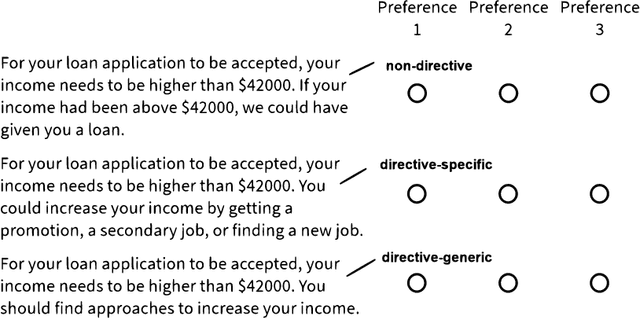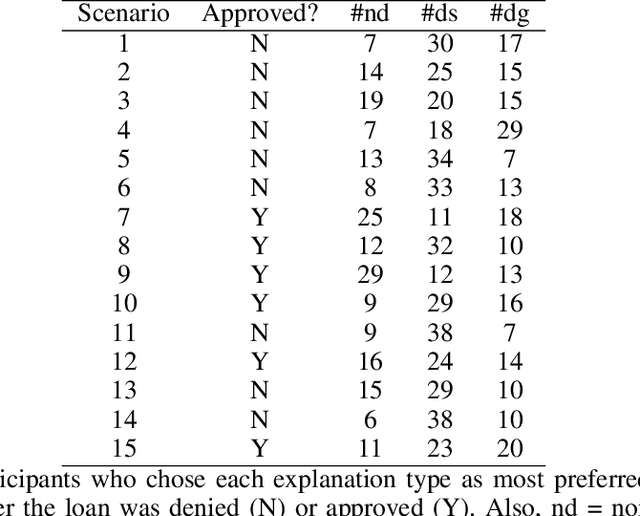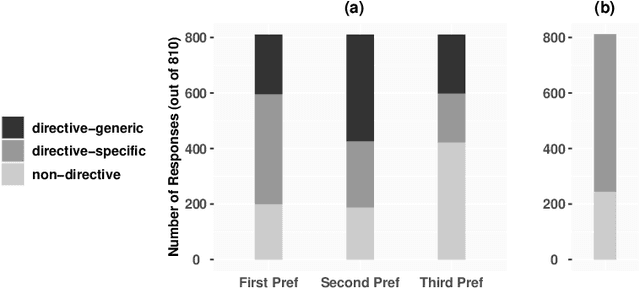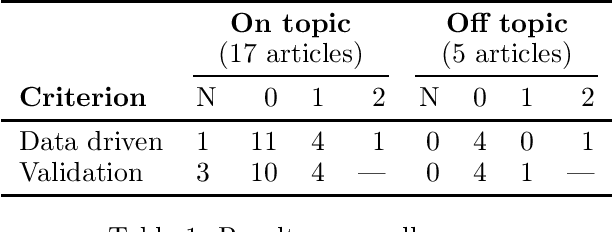Piers Howe
Directive Explanations for Actionable Explainability in Machine Learning Applications
Feb 03, 2021



Abstract:This paper investigates the prospects of using directive explanations to assist people in achieving recourse of machine learning decisions. Directive explanations list which specific actions an individual needs to take to achieve their desired outcome. If a machine learning model makes a decision that is detrimental to an individual (e.g. denying a loan application), then it needs to both explain why it made that decision and also explain how the individual could obtain their desired outcome (if possible). At present, this is often done using counterfactual explanations, but such explanations generally do not tell individuals how to act. We assert that counterfactual explanations can be improved by explicitly providing people with actions they could use to achieve their desired goal. This paper makes two contributions. First, we present the results of an online study investigating people's perception of directive explanations. Second, we propose a conceptual model to generate such explanations. Our online study showed a significant preference for directive explanations ($p<0.001$). However, the participants' preferred explanation type was affected by multiple factors, such as individual preferences, social factors, and the feasibility of the directives. Our findings highlight the need for a human-centred and context-specific approach for creating directive explanations.
Explainable AI: Beware of Inmates Running the Asylum Or: How I Learnt to Stop Worrying and Love the Social and Behavioural Sciences
Dec 05, 2017
Abstract:In his seminal book `The Inmates are Running the Asylum: Why High-Tech Products Drive Us Crazy And How To Restore The Sanity' [2004, Sams Indianapolis, IN, USA], Alan Cooper argues that a major reason why software is often poorly designed (from a user perspective) is that programmers are in charge of design decisions, rather than interaction designers. As a result, programmers design software for themselves, rather than for their target audience, a phenomenon he refers to as the `inmates running the asylum'. This paper argues that explainable AI risks a similar fate. While the re-emergence of explainable AI is positive, this paper argues most of us as AI researchers are building explanatory agents for ourselves, rather than for the intended users. But explainable AI is more likely to succeed if researchers and practitioners understand, adopt, implement, and improve models from the vast and valuable bodies of research in philosophy, psychology, and cognitive science, and if evaluation of these models is focused more on people than on technology. From a light scan of literature, we demonstrate that there is considerable scope to infuse more results from the social and behavioural sciences into explainable AI, and present some key results from these fields that are relevant to explainable AI.
 Add to Chrome
Add to Chrome Add to Firefox
Add to Firefox Add to Edge
Add to Edge